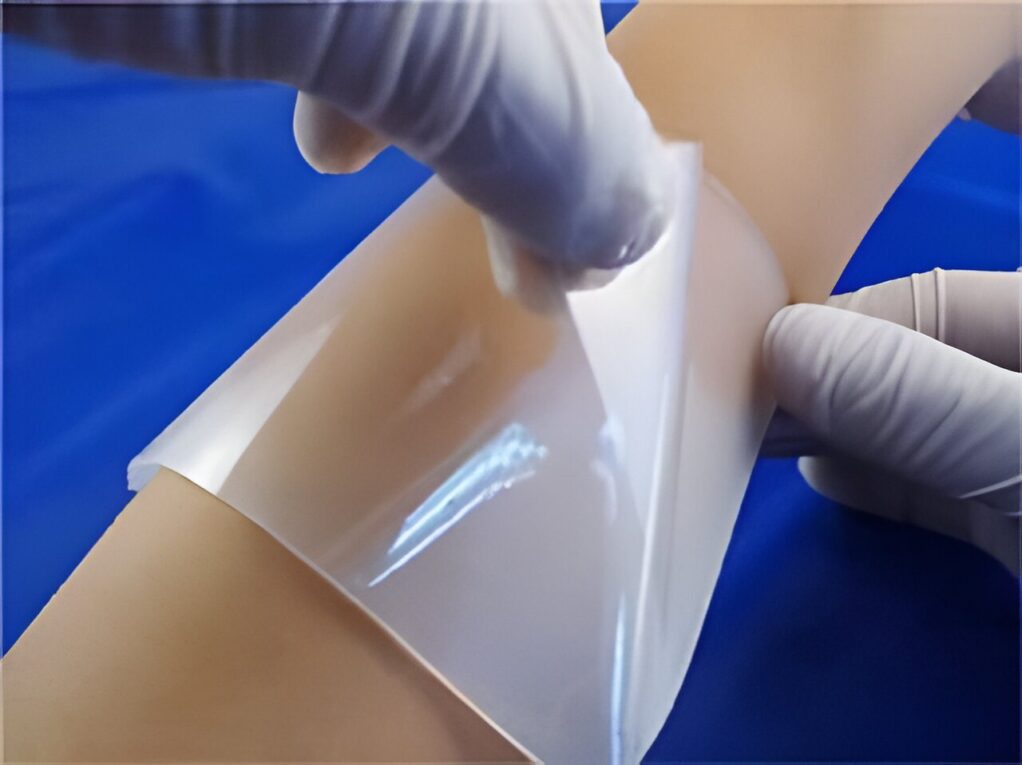A groundbreaking discovery by researchers at McGill University could potentially transform the field of wound care. Hydrogels, synthetic materials that can absorb and retain water, have long been used in medical treatments such as dressing wounds. However, the problem with current hydrogels is that they adhere to all surfaces indiscriminately, which can lead to damage to delicate healing tissue.
The McGill researchers have found a way to manipulate the surface of hydrogels, allowing them to program where the gel will adhere and with what degree of intensity and speed. This breakthrough means that adhesive gels can be programmed to form strong bonds with healthy tissue and weaker bonds with wounded tissue, reducing the risk of secondary damage.
Zhen Yang, a postdoctoral fellow in the Department of Mechanical Engineering at McGill University and the first author of the recently published article in PNAS, explains that this discovery has the potential to greatly benefit surgeons. It will enable them to accurately place an adhesive that only adheres to the desired location and not others, giving them more precise control during procedures.
While the immediate focus is on wound care, this research could also have implications for designing medical devices that release drugs onto tissue surfaces over an extended period. By programming the hydrogel to bond with specific areas, sustained drug release can be targeted more effectively, improving treatment outcomes.
The next step for the McGill researchers is to investigate how this discovery can be applied to the design of medical devices. By harnessing the programming capabilities of hydrogels, they aim to create devices that provide controlled and sustained drug release to specific tissue surfaces. This could have significant implications for various medical applications, including chronic disease management.
Hydrogels have already been used in a range of medical treatments and drug delivery systems due to their unique properties, such as biocompatibility and versatility. However, the ability to program hydrogels to selectively adhere to different surfaces opens up exciting possibilities for improving patient care.
In the field of wound care, being able to target healthy tissue while avoiding further damage to wounded tissue can greatly enhance the healing process. Surgeons could utilize programmable hydrogels to precisely place wound dressings, ensuring optimal outcomes for patients.
In addition to wound care, programmable hydrogels have the potential to revolutionize drug delivery systems. By precisely targeting specific tissue areas, they can provide sustained and controlled release of medications, making treatment more effective and reducing potential side effects.
The research conducted by the McGill University team represents a significant advancement in the field of hydrogels. Their ability to manipulate the adhesive properties of these materials can potentially transform various medical applications, from wound care to drug delivery systems.
As further research is conducted, it is hoped that programmable hydrogels will become a key tool in the healthcare industry. By harnessing the unique properties of hydrogels and employing innovative programming techniques, medical professionals will be able to provide more targeted and effective treatments for patients. The future of wound care and drug delivery looks promising with this pioneering development.
*Note:
1. Source: Coherent Market Insights, Public sources, Desk research
2. We have leveraged AI tools to mine information and compile it

